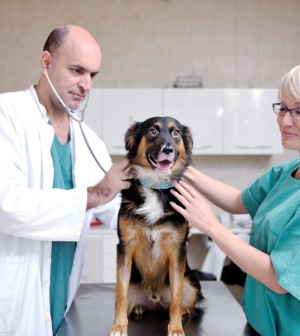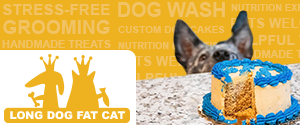- Do you subscribe to Dharma Dog Training’s Newsletter? You should.
- A Unique Campaign from The Humane Society of the United States
- Rabid bats in Omaha- Stay safe, prepared with these tips
- Springtime Activities in Omaha
- Mill Dog Monthly from Bailing Out Benji
- World Spay Day, Legislative Alert in Nebraska
- Attend the Nebraska Rescue Council’s monthly meeting this Saturday
- Five Hard-to-Ignore Reasons to Adopt!
- Paws in Pink to Benefit Breast Cancer Foundation
- VCA, Inc. Acquires MidWest Vet Specialists from Kansas State University
9 Tips for Keeping Your Dogs in Great Health

Knowing how to do something is the best key for success. And if you know what it takes to keep your pets healthy, you’re more likely to have a healthy pup! Here, we’ve got nine essential tips for dog owners that will (hopefully!) help keep dogs on the up and up.
1. It is all about knowing your dog breed:
If you already have a dog, then knowing your dog breed characteristics is a good start. Every dog breed has its own trending health issues and you should be aware of them. If you intend to buy or adopt a puppy, there are some breeds that are healthier than others and they are more resistant to common diseases. The list includes the Border Collie, the Australian Shepherd, the Siberian Huskie, the English Springer Spaniels, the Shiba Inu, the Beagle, the Basenji, the Belgian Malinois, the Chihuahua, the German Pinscher, the Australian Cattle Dog …
2. Colostrum, colostrum, and colostrum:
The rule number one for Puppies: we’ll feed them with colostrum. Getting enough colostrum does not only help give your newborn puppies a good initial growth but also boosts the puppy immunity in this critical period.
3. Special care for puppies :
Isolate puppies from the outside world until they reach 3 or 4 months and get vaccinated. Always try not to mix young dogs with strange dogs. That’s because puppies are very sensitive to the load of bugs that other dogs or unhealthy places shed. Think of infection development in puppies as dose-dependent.
4. Healthy nutrition is the key:
Try to vary your dog food and do not stick to one type of food. Commercial dry foods are recommended because they are balanced, and their benefits outweigh their cons. Like the fact that they come in different categories that suit every life stage of the dog. But with time, dry foods are not kidney-friendly. Try feeding your dog on raw foods and homemade recipes from time to time. They have fresh ingredients and are free from chemicals that some scientists believe are causing allergy and cancer. Provide clean and fresh water permanently.
5. Good nutrition matters:
Nutrition quality is a key factor to prevent not only nutritional diseases but also the infectious ones. Always remember that the fewer you give carbs (grain, starch, pasta, potatoes, beans, …) in your dog’s diet, the better it is. Dogs can live their entire life normally without carbs since they can generate carbs from proteins and other foodstuff. Excess of carbs is the main cause of obesity and diabetes.
6. Vaccination:
Vaccines are meant to boost the immune system so that it becomes trained to tackle deadly viruses and bacteria. A common misconception that people have is that vaccinated puppies are immediately protected. Well not. Vaccines take some time to take effect on the body. So don’t walk your puppy around until one month after his first complete vaccination. Vaccines lose their effect with time and this is why they are routinely repeated every year. Try to respect your vaccination schedule.
7. Antiparasitic drugs are not a choice:
Along with vaccines, antiparasitic drugs are important to make your dog get rid of external and internal parasites. Parasites hide in the skin, the ears, the gut, and their harm is often underestimated. For instance, fleas and ticks could carry bugs between dogs.
8. Regularly brushing your dog’s teeth:
Start brushing your dog teeth in his first month of age. Use a toothbrush and a toothpaste made for dogs. Special toothbrushes have soft bristles so that you don’t harm the gum (Gingiva). If not so, A kid’s size toothbrush is can do the job.
9. Regular veterinary checks:
Taking your dog to the vet every year or two is important to early check his health condition.
If you have many dogs:
Keep them in clean and dry place and try not to mix different ages together. Older dogs usually shed viruses and bacteria that may compromise younger dogs.
Related Posts
Latest News
-
3 Tips for Pet Owners on Training Rescue Dogs
Owning a rescue dog can take some work compared to...
- Posted 3 weeks ago
- 0
-
Choosing the Right Pet for Your Lifestyle
Are you thinking about getting a pet but unsure what...
- Posted 1 month ago
- 0
-
How to Make Your Rescue Pet as Comfortable as Possible
Did you bring home a new pet from a shelter...
- Posted 2 months ago
- 0
-
How Having A Pet Can Change Your Life
Having a pet can open your heart in ways that...
- Posted 7 months ago
- 0
-
How To Improve The Life Of Your Senior Pet
Do you have an elderly fur baby and want to...
- Posted 8 months ago
- 0
-
Springtime Activities To Enjoy With Your Furry Friends
Are you preparing for warmer weather and want some ideas...
- Posted 9 months ago
- 0
-
Pros And Cons Of Microchipping Your Pets
Have you considered whether your pets should be microchipped and...
- Posted 9 months ago
- 0






















You must be logged in to post a comment Login